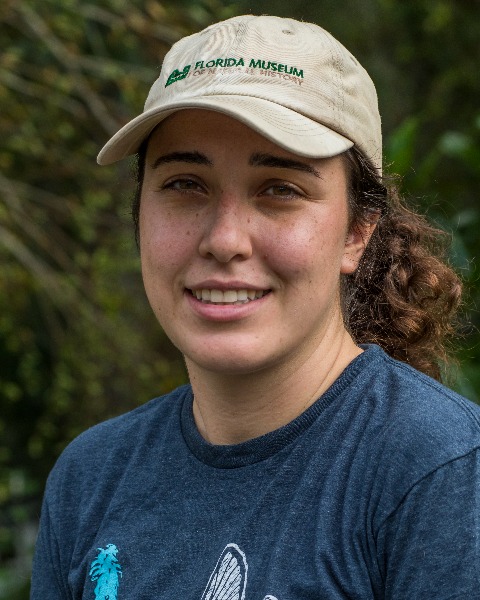10-Minute Presentation
Systematics, Evolution, and Biodiversity
Leveraging high-throughput genomics to aid imperiled insect conservation

Ivone de Bem Oliveira, Ph.D. (she/her/hers)
Postdoctoral Associate
University of Florida
Gainesville, Florida
Taylor Pierson (she/her/hers)
Graduate Student
University of Florida
Gainesville, Florida
Leonardo C. J Corvalan, MSc
Visiting researcher
University of Florida
Gainesville, Florida
Sarah Steele Cabrera
PhD Candidate
University of Florida
Gainesville, Florida- GH
Geena Hill
University of Florida
Gainesville, Florida 
Amanda Markee (she/her/hers)
Graduate Student
American Museum of Natural History
New York, New York- JD
Jaret C. Daniels, Ph.D.
Professor and Curator
University of Florida
Gainesville, Florida
Presenting Author(s)
Co-Author(s)
Habitat loss and fragmentation, climate change, and pollution are among the fundamental challenges to biodiversity conservation. Imperiled species and habitat specialists are particularly vulnerable in this scenario, given the specificity of the niche required for survival and the low numbers already observed for these species. Conserving genetic diversity is a key priority for biodiversity management. Loss of genetic diversity can significantly impact species fitness and its ability to adapt to an ever-changing environment. Genomic tools provide accurate insights into population demographics, evolutionary relationships, and other critical factors for conservation. Nevertheless, funding limitations and sequencing costs still hinder genomics application for non-model species in conservation efforts. Development of cost-effective pipelines is needed to integrate high-end technology into conservation studies. Besides the cost, the application of genomics for imperiled species is also challenging, given the difficulty of obtaining the quantity and quality of genetic material for sequencing without affecting the survival and fitness of individuals after sampling. Our lab has partnered with the U.S. Fish and Wildlife Service to investigate genetic diversity and inform conservation actions for multiple insect species. Here, we will present the results of a cost-effective protocol using non-lethal sampling for rapid assessment and species monitoring, demonstrating its successful application across three imperiled species. Future studies will integrate the data generated here for population genomics and genome assembly with environmental data to identify adaptations associated with climate change and the use of this information to aid imperiled species conservation.

.png)
